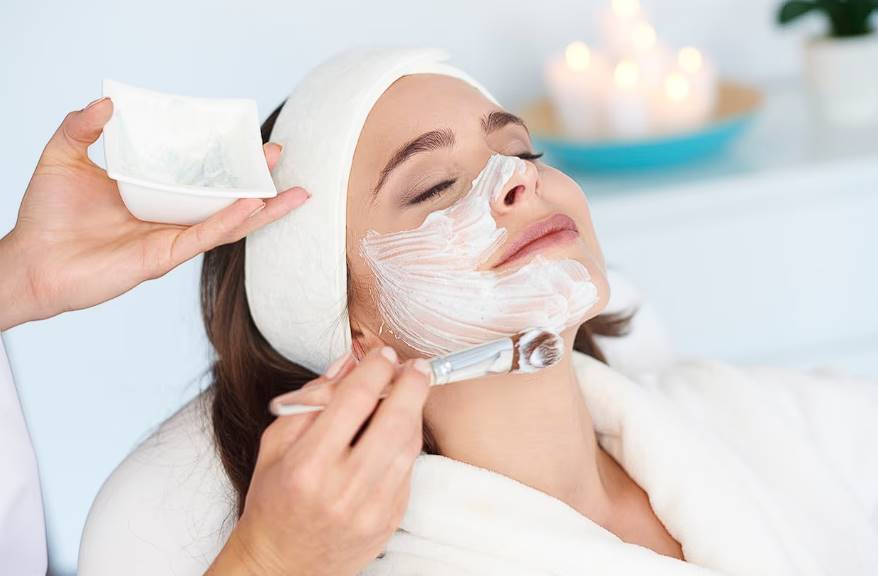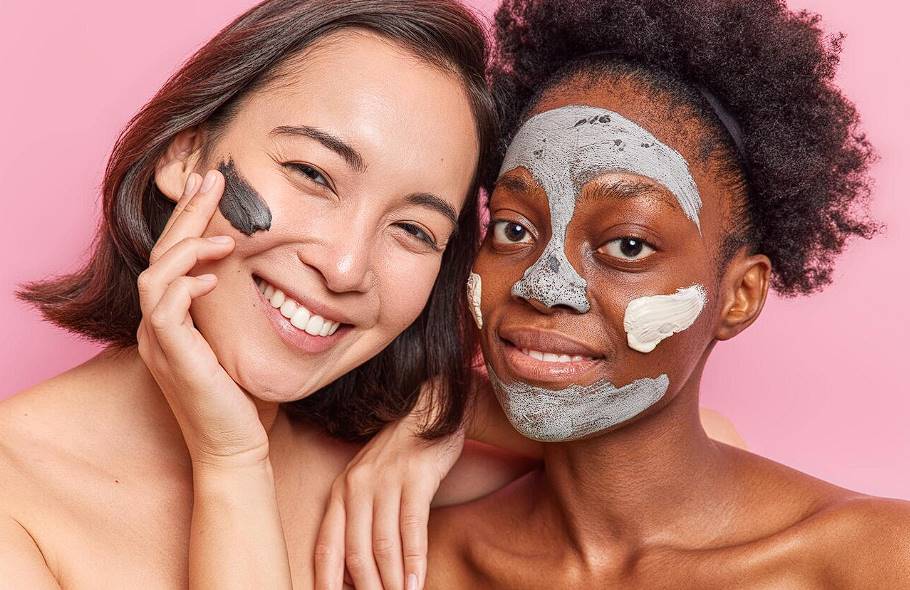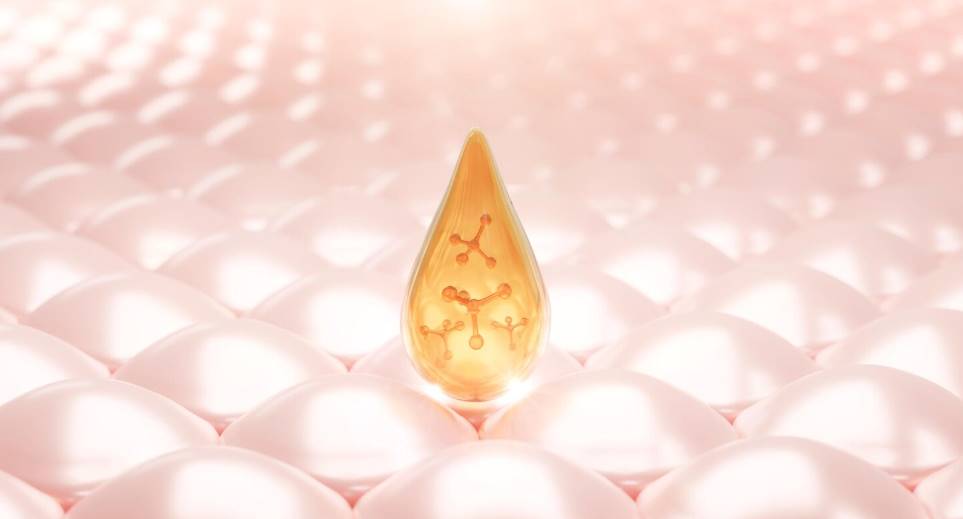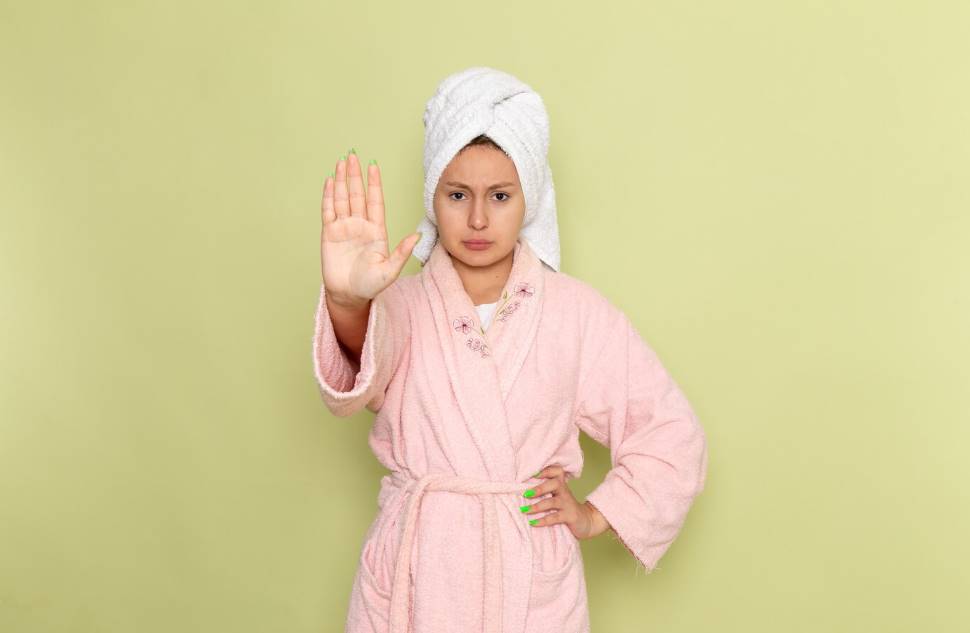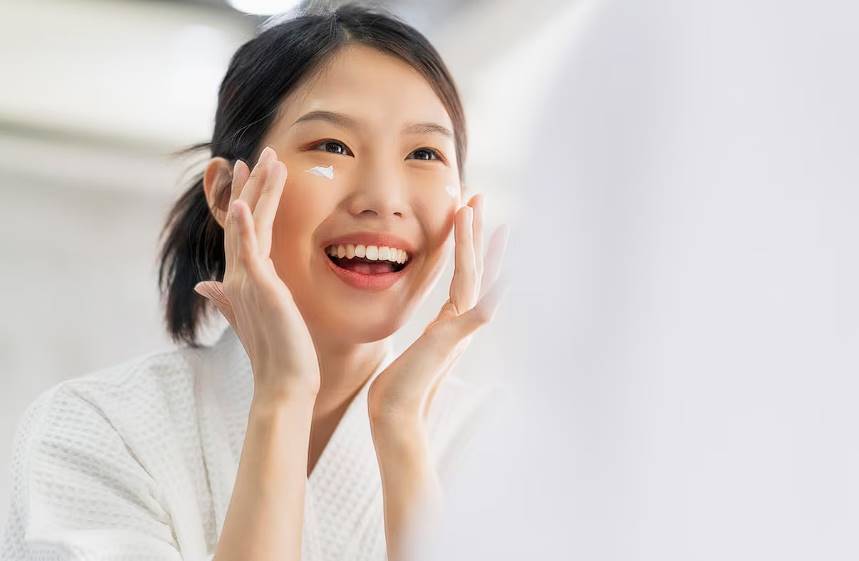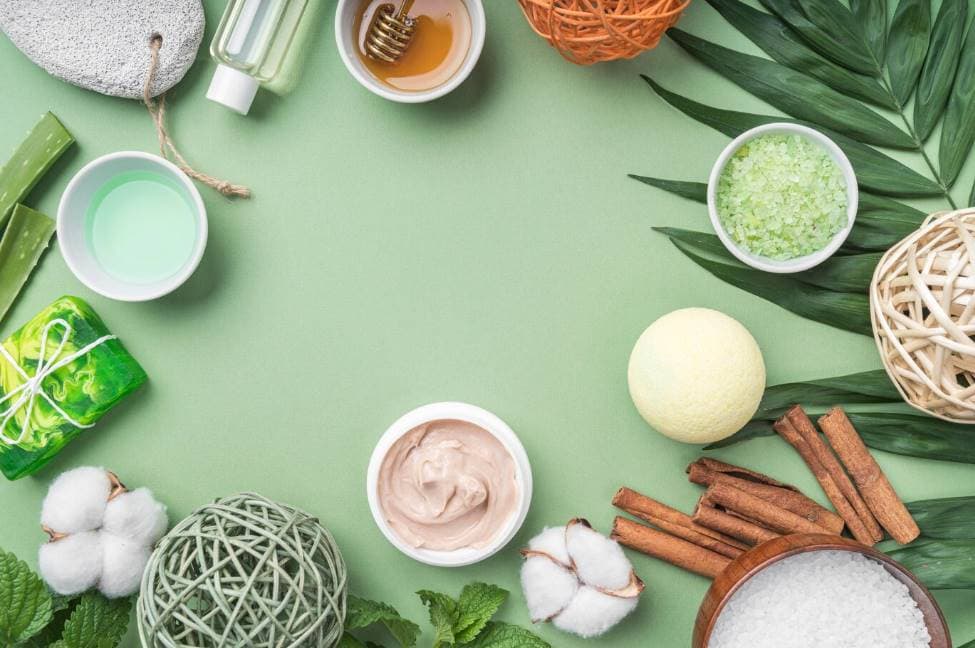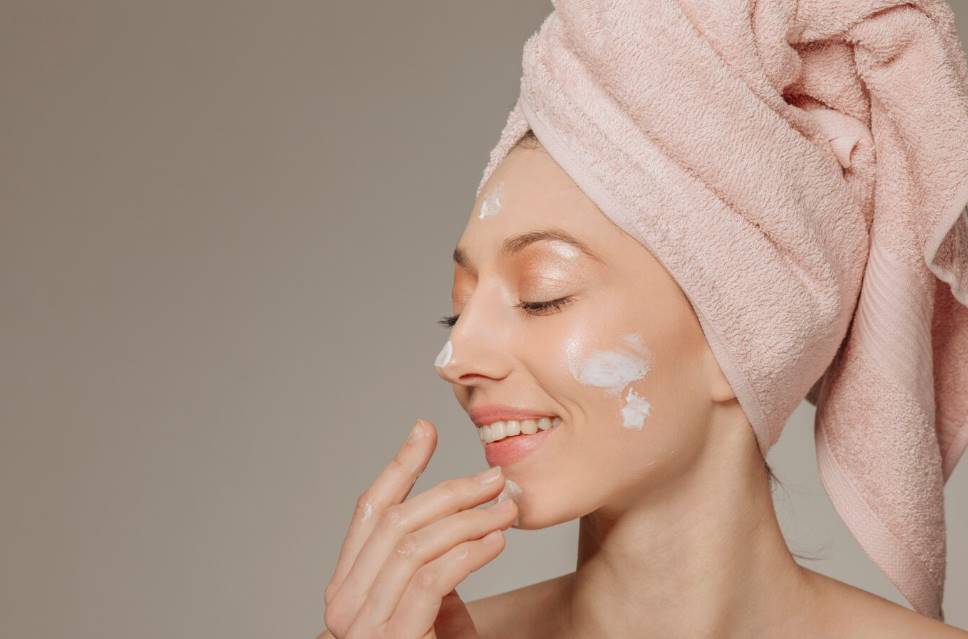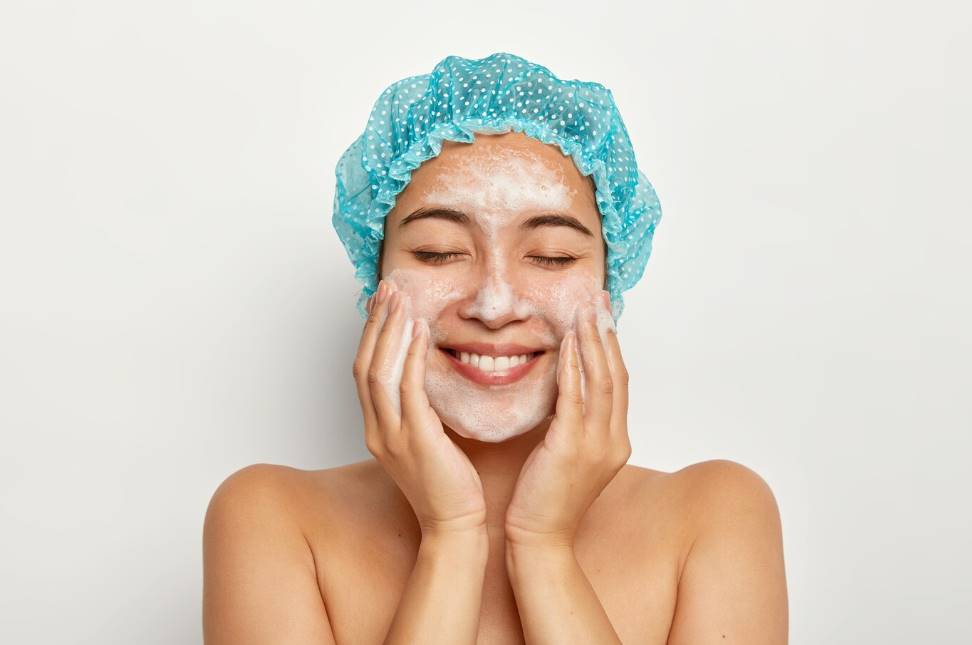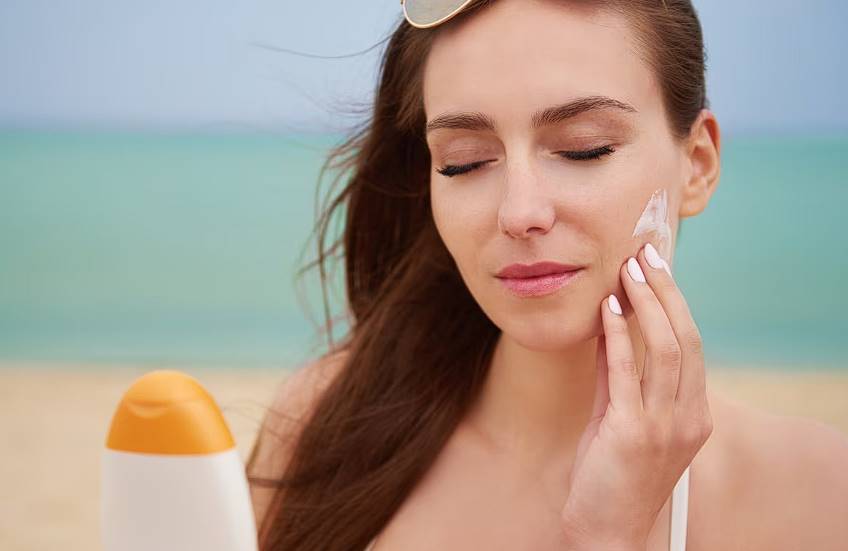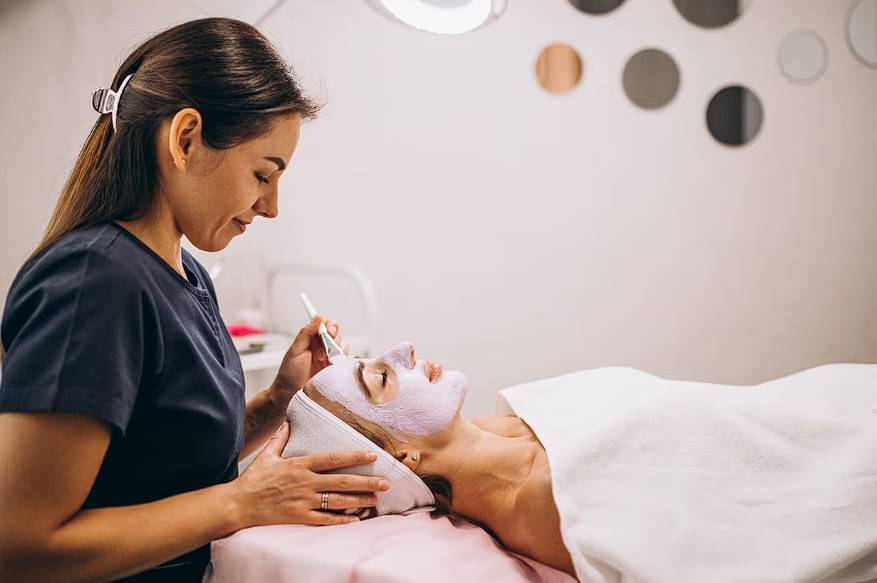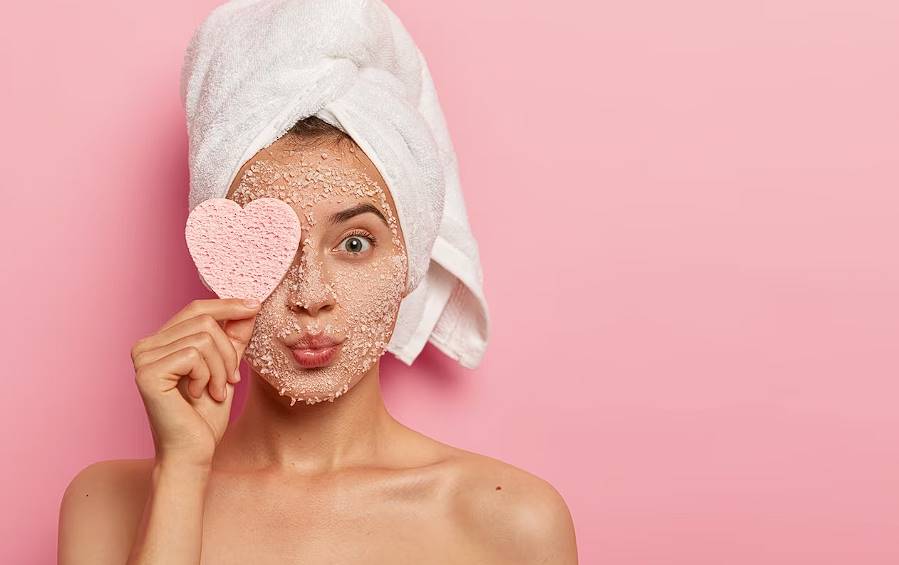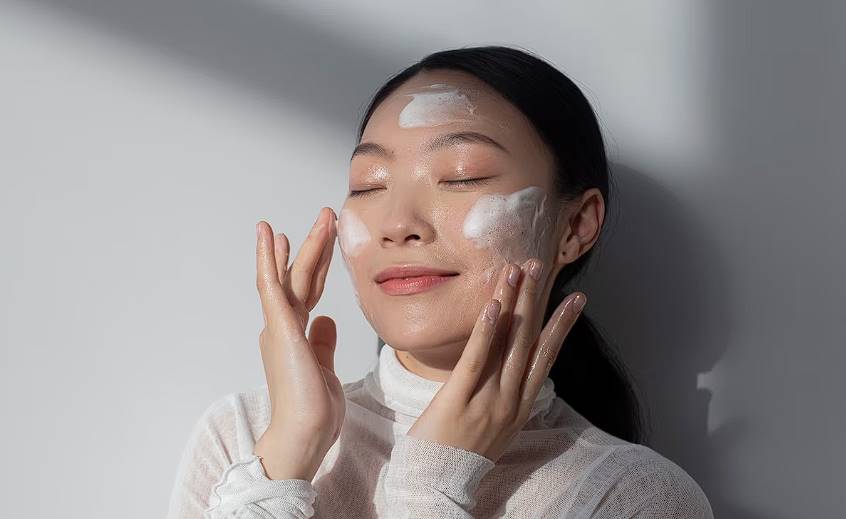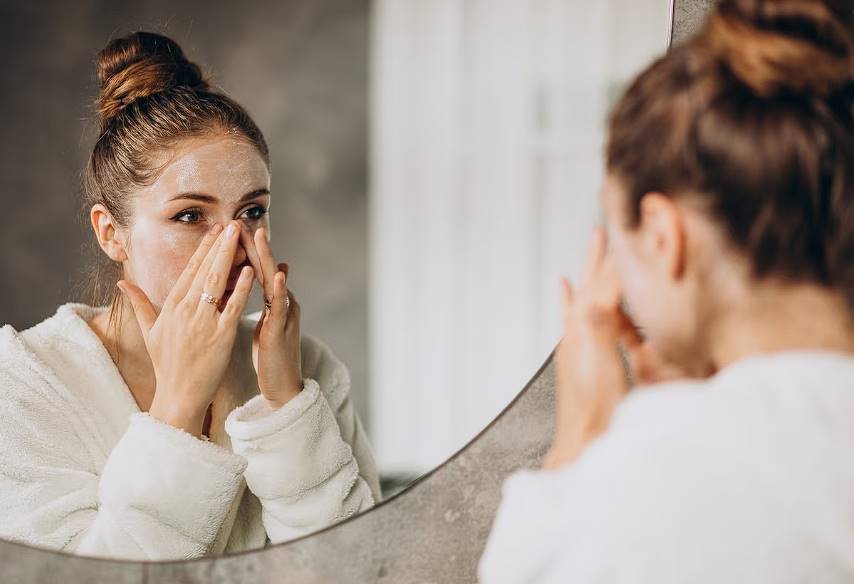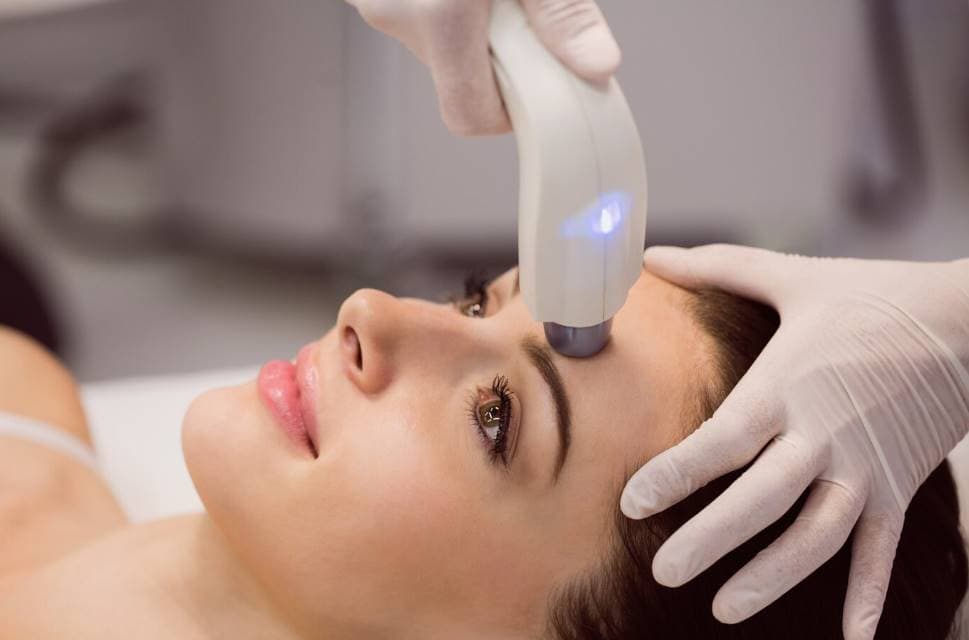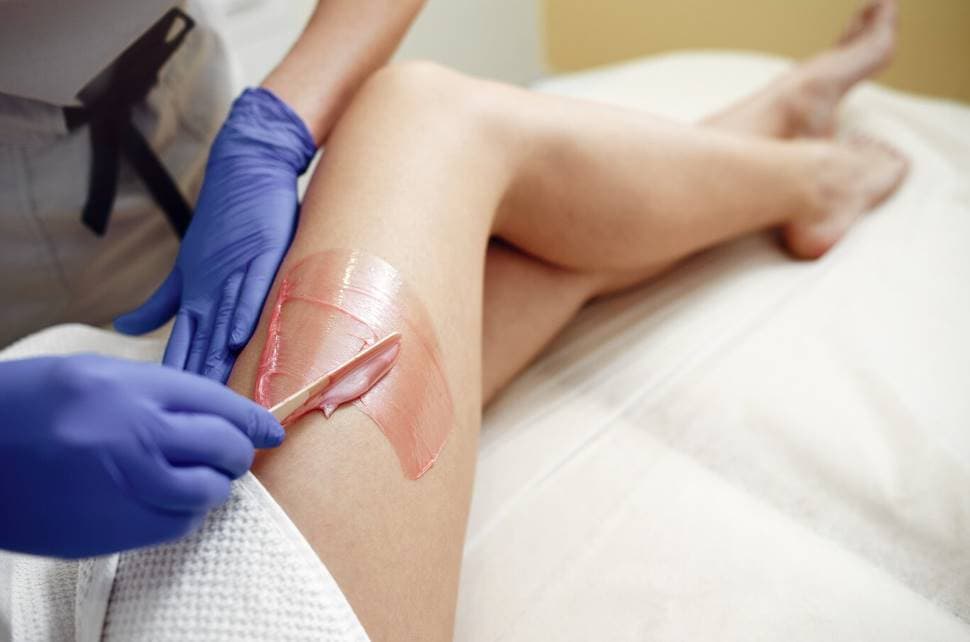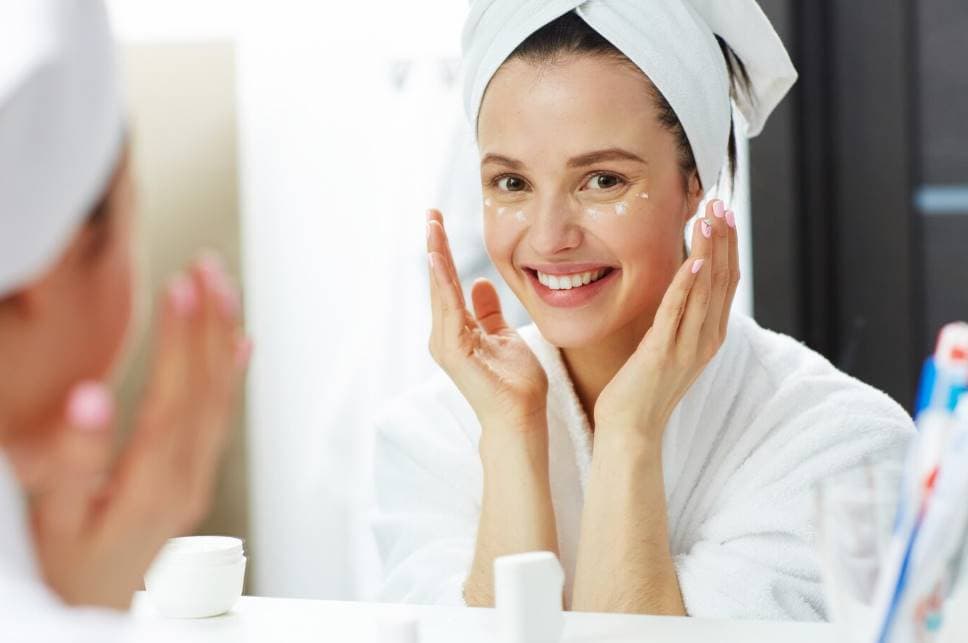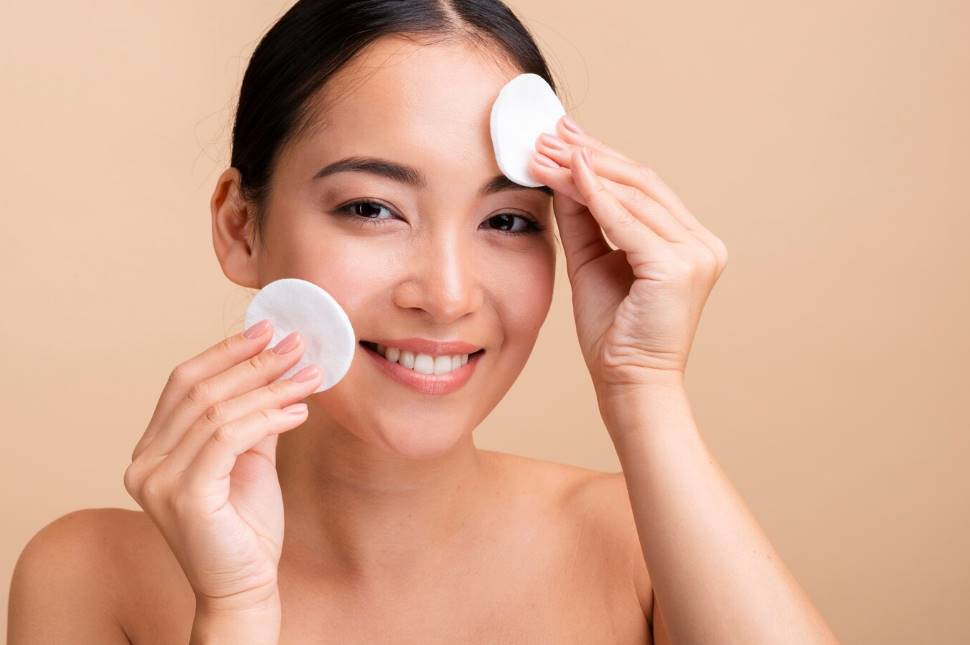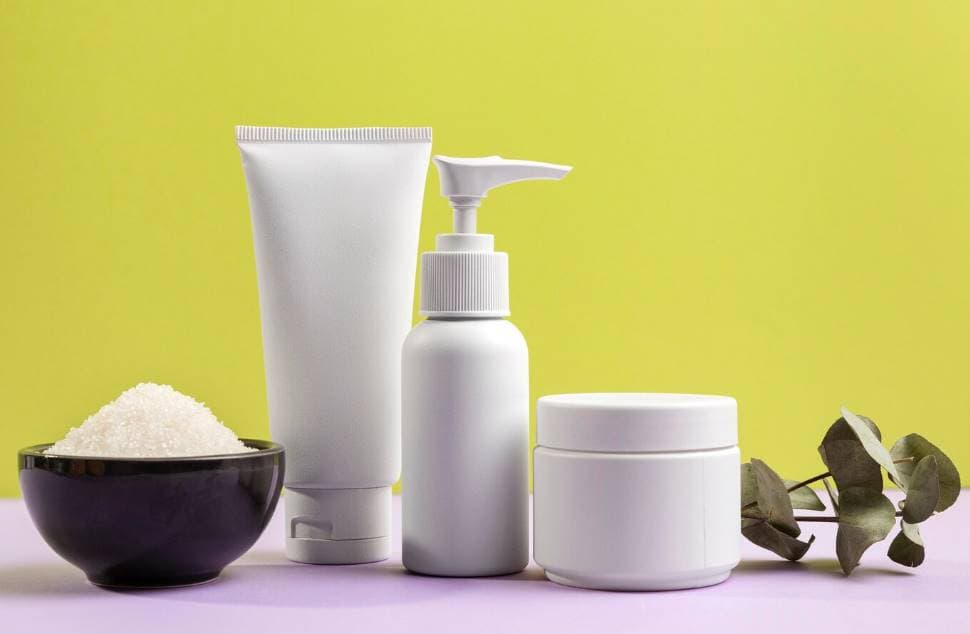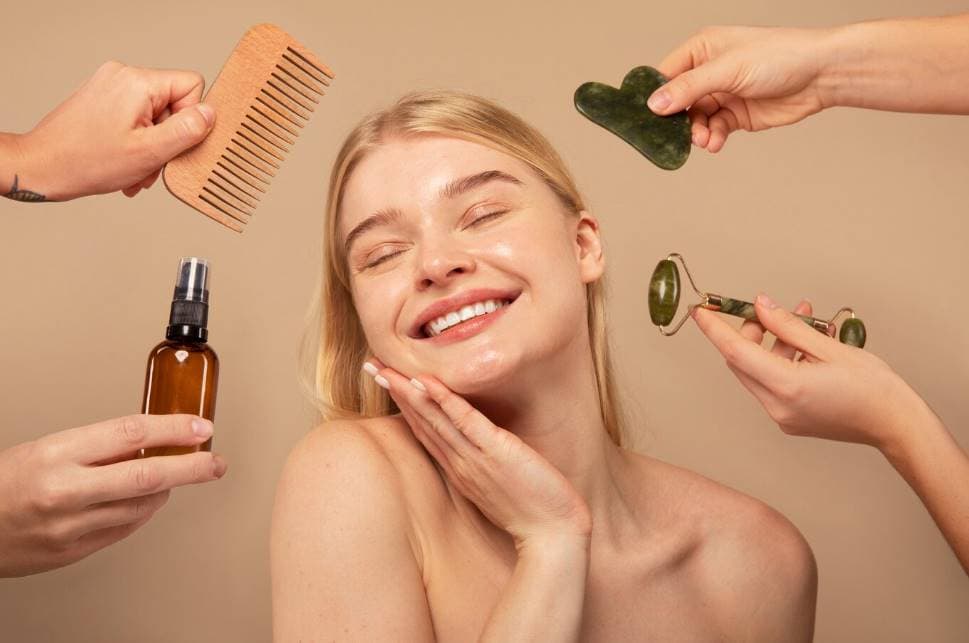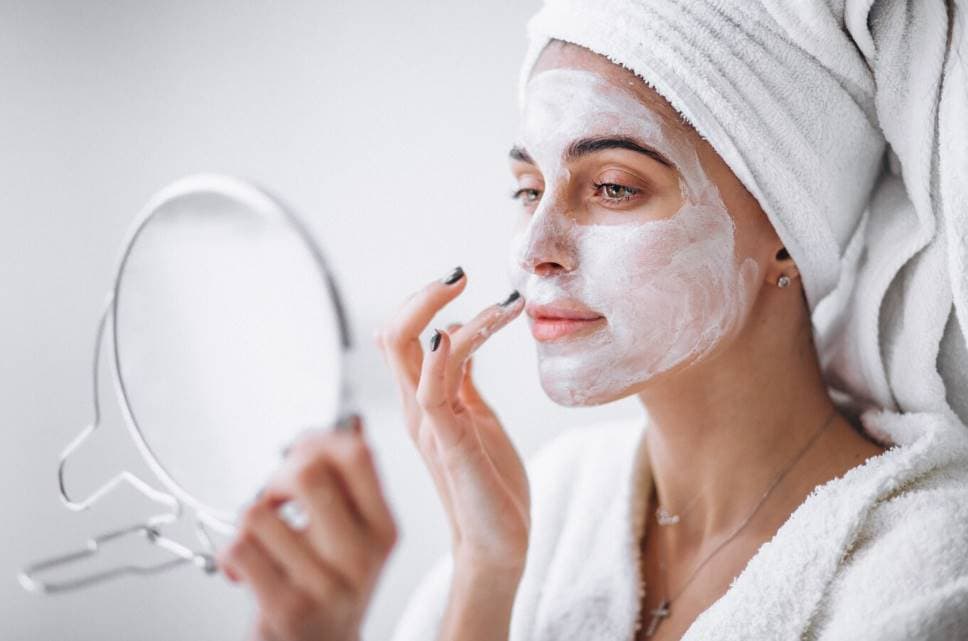Beauty comes with age. You are as old as you feel, and with that age comes insight. We should also remember that 50 is the new 40. There's nothing wrong with loving the flesh you're in. But what can you do if you're unhappy with the appearance of your skin?
You may cover up a lifetime of neglect with the most expensive foundation money can buy, and it won't make much of a difference. A good anti-aging beauty routine is essential for you.
Do you feel like you've joined the anti-aging skin care movement too late? Even if you've always cared for your skin, you might need to see results from your current routine. We've got you covered either way. The best present you can give yourself right now is the time to read this anti-aging skin care advice.
What Makes An Effective Skin Care Routine For Anti-Aging?
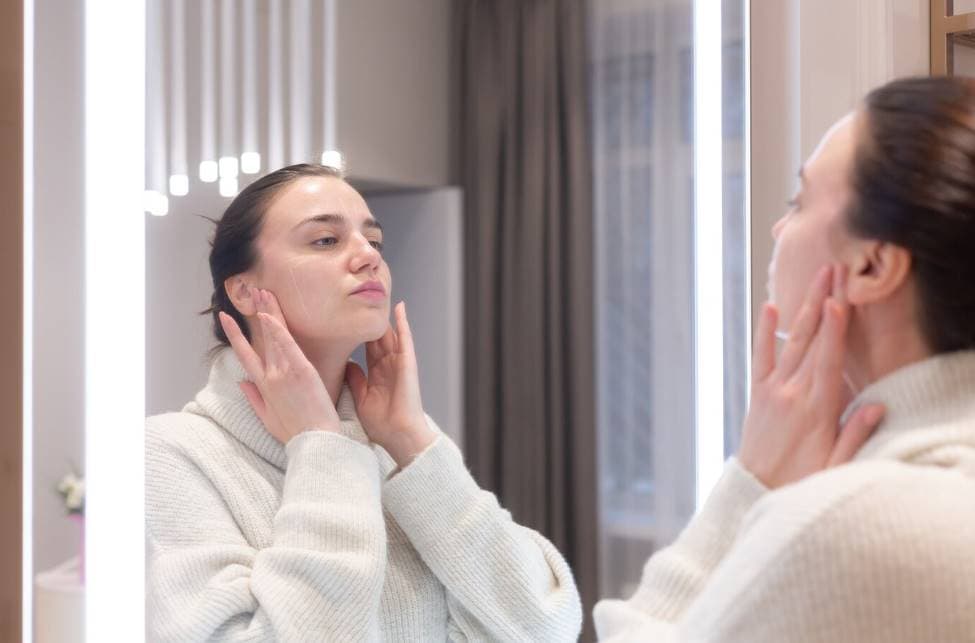
Collagen, the protein responsible for the strength and structure of the skin, is produced in decreasing amounts as we age, leading to a loss of firmness and elasticity in the skin. As a result, skin becomes droops, fragile, and develops wrinkles and sags. Regular exposure of unprotected skin to UVA and UVB radiation produces gene mutations due to free radical damage. Sun damage can manifest in the form of age spots, wrinkles,roughness, and even skin cancer.
In reality, ultraviolet (UV) environmental damage is the leading cause of premature skin ageing.
Protecting the skin from this kind of damage and then infusing it with chemicals that strengthen and protect it is key to an effective anti-aging skincare routine, as it reduces the appearance of fine lines and wrinkles and stops the development of dark, hyperpigmented patches. Skin care should include safeguarding the skin's barrier function, which prevents the skin from being damaged by external aggressors, including pathogens, allergies, and even moisture loss.
Skin will look red, inflamed, irritated, and hypersensitive if its barrier function has been disrupted due to an imbalance. Because of this, it is also vulnerable to acne and atopic dermatitis.
Alpha-hydroxy acids (AHAs), including vitamins C and E and retinol, a vitamin A derivative, are important components of an anti-aging routine because they protect the skin barrier function and defend against skin damage.
Antioxidants like these are known to boost cell turnover, which in turn clears and brightens the skin and stimulates the creation of collagen and elastin, which improves the skin's thickness, suppleness, and overall health. Together, these substances offer powerful protection against the signs of ageing brought on by both the passage of time and environmental aggressors, including UV rays and pollution in the form of wrinkles, dark spots, sagging skin, and age spots.
Analyse Your Skin Type
Selecting products and active agents that work well with your skin type is key to developing an effective anti-aging skin care programme.
- Hydrating creams can help improve the appearance of dry skin, which can be dull, flaky, and coarse. Products containing hyaluronic acid, a powerful chemical known for attracting and retaining moisture and its anti-aging properties, are worth seeking. Look for a moisturiser containing ceramides, a vital component of the skin barrier, to lock in moisture and establish a protective barrier for dry skin.
- Products with minimal or no synthetic ingredients and perfumes are best for sensitive skin. If you want the same anti-aging effects as retinol without the peeling and stinging, try bakuchiol, a plant-based alternative. In one study, bakuchiol was shown to reduce wrinkle depth and skin discolouration dramatically.
- Lightweight solutions that remove excess oils, such as salicylic acid, can help oily skin in several ways. For one, they can exfoliate dead skin cells, revealing a smoother, younger-looking face. Because of its anti-aging properties and ability to control oil production, retinol is also a good choice for oily skin.
- Retinol is safe for combination skin. However, it should only be used daily if there are no adverse reactions. The skin barrier can be strengthened and moisture loss prevented with the help of ceramides and peptides included in many moisturisers.
What Age Is Best To Begin Anti-Aging Skin Care?
According to experts, anti-aging skin care should be started as early as possible. It's also always possible. It's ideal to get started on this before the first signs of skin ageing appear. No hard and fast rule says you can't start an anti-aging practice in your 30s, 40s, or 50s. Even if years of sun damage can't be undone, many people can slow or reverse some of the visible effects of aging.
Tips For An Anti-Aging Skin Care Routine
Determine your skin type to know which products will work best for you and which ingredients to look for in their active formulations. Try to find items not tampered with by added perfumes, parabens, formaldehyde, or phthalates. All of them have the potential to aggravate and dry up your skin.
Cleanse
Unless you have really dry skin, you should wash your face twice daily to get rid of oil, dirt, and dead skin. Choose a low-pH cleanser that is mild and appropriate for your skin type and any concerns you may have. Foaming cleansers with salicylic or glycolic acid are great for oily skin because they stimulate cell turnover and eliminate excess oil, while cleansers made with glycerine and emollients are great for dry skin because they add moisture.
Although most cleaners do not include potent anti-aging ingredients, they are important in an anti-aging skincare routine. If you want to keep your skin's protective barrier intact, pick one that leaves your skin feeling clean and soothed.
Tone
A toner after cleansing helps the skin absorb subsequent treatments, such as serums and moisturisers. You can choose an astringent product to clear and balance oily skin, a calming product for sensitive skin, or a moisturising product for dry skin, all of which are available in this category. The anti-aging benefits of these toners come from the active chemicals they contain.
Antioxidant components, including vitamins C and E, assist in fortifying skin and shielding it from environmental damage, which reduces the appearance of fine lines and wrinkles.
Exfoliate
Regular exfoliation with an AHA is a crucial part of an anti-aging skincare routine because it increases blood flow, making the skin look healthier and more radiant and encouraging quick skin cell turnover, which removes damaged and hyperpigmented patches. Because of this, you'll be able to show off a radiant, youthful glow.
The collagen-boosting and moisture-restoring effects of AHAs are well-known. The skin is thickened and strengthened, which helps prevent drooping, and fine lines and wrinkles are smoothed out, giving the appearance of youth and vitality. To achieve these goals, glycolic acid is the optimal AHA; however, those with sensitive skin should use lactic acid instead because it is milder and less prone to irritate the skin.
Apply A Serum
Serums marketed as anti-aging remedies typically contain multiple bioactive components in a highly concentrated concentration. Due to its potency in hastening skin cell turnover and increasing collagen formation, retinol is the most popular anti-aging substance. This thickens the skin, making it less prone to wrinkles, and makes the skin appear brighter. Since retinol increases photosensitivity, it should be applied after dark. Wait a few minutes to let the serum sink into your skin before adding moisturiser. A vitamin C serum is another great choice that will leave your skin looking radiant.
Moisturize
Wrinkles and fine lines on the skin's surface are less obvious when the skin is sufficiently moisturised. Additionally, they aid in maintaining the skin's barrier function by retaining moisture and preventing loss. Moisturisers can be found in various textures to accommodate different skin types, and many contain additional compounds that can aid in an anti-aging regimen.
Morning
Niacinamide, a form of vitamin B3, vitamins C and E, and ferulic acid are excellent additions to a moisturising cream. The acid enhances the effectiveness of the vitamins in this combination.
The effects of 5% niacinamide on the skin's elasticity, texture, fine lines and wrinkles, hyperpigmentation, blotchiness, redness, and sallowness were examined in one study.
Protect your skin from photodamage by using ferulic acid, a potent antioxidant that may scavenge and neutralise free radicals. Combining ferulic acid with vitamins C and E is the best option because it boosts vitamin C's effectiveness by a factor of eight.
Evening
Most cellular renewal and healing of the skin happens at night when the skin also tends to dry up. Use a night cream with potent active ingredients to treat any concerns and replenish moisture levels when your skin is more responsive at night. Nighttime is the best time to give your skin extra moisture by using a thick, nourishing moisturiser, preferably one with hyaluronic acid or ceramides. Using alpha hydroxy acids or retinol will also help alleviate any dryness brought on.
Eye Area
Remember to apply eye cream to protect that delicate skin. Crow's feet, fine wrinkles, and dark under-eye circles are more likely to appear on skin of this thickness and fragility. The delicate skin around your eyes needs special attention, so consider using a firming, hydrating, and protecting under-eye cream. Tap, rather than rub, a small amount of substance into the skin.
Protect
Finally, regardless of the weather, always put on sunscreen with a sun protection factor (SPF) of at least 30 before going outside in the morning. Protecting your skin from sun damage and ageing is crucial, and this is one of the best ways.
Give It Time
It is advisable to include new skincare products into your routine gradually. If you add them all at once, you can't tell which of several new products you're introducing is responsible for the desired result. Now, you have a long list of things to keep buying, even though you may only have use for a small subset of them. It's more difficult to determine which of several new components caused an allergic reaction if you tried them all simultaneously.
It would help if you also gave your products some time to have an effect. Protecting your skin is a long-term commitment, not a quick fix. Time spent rejuvenating will be well-spent.
Expert warns that it's common for skin to appear worse before it gets better when trying out new skincare components. Purging of the skin is a normal and healthy process. When your skin goes through a purge, it implies that the products you employ to care for it are working. The basement will indeed look worse before it gets better when you start organising it. Waiting at least three months before judging the efficacy of a new skincare product.
Additional Methods For Skin Care
You can't rely on face creams and lotions to maintain healthy, youthful skin. Furthermore, it all begins on the inside. The condition of your skin, like any other organ, can indicate your general state of health.
Regarding Sleep

Did you realise there's more to benefiting from eight hours of sleep than just your appearance? Getting enough sleep is crucial to your overall health, including your skin's appearance. Those who burn the oil at night typically leave telltale marks on their skin. Lack of quality sleep accelerates biological ageing, which can have far-reaching effects on health beyond the internal organs. Your skin, another external organ, is affected as well.
Those who don't get enough rest often exhibit signs of aging, including dry, dull eyes, brittle hair, and fine lines and wrinkles. Lack of sleep has long-lasting negative consequences that are difficult to undo. Inadequate sleep patterns can accelerate ageing; not even the most effective anti-aging treatments can reverse it. Consider making adjustments today if you need more sleep quality. You can add this to your arsenal of anti-aging measures. Plus, it's good for your skin.
What You Eat Shapes Who You Are
The words may be a cliche, yet they have much truth. The inside and the outside of your body can benefit from an anti-aging skincare routine and a nutritious diet. Consuming nutrient-rich foods regularly can help maintain radiant skin. Ensure that you have a sufficient amount of the following:
- Good protein
- Nutritious Fats
- Foods high in antioxidants
Conclusion
Anti-aging skincare routines are essential for maintaining radiant, youthful skin. As we age, collagen production decreases, leading to a loss of firmness and elasticity in the skin. Exposure to UVA and UVB radiation can cause gene mutations due to free radical damage, resulting in age spots, wrinkles, roughness, and even skin cancer. UV environmental damage is the leading cause of premature skin ageing.
To protect the skin from these damage, an effective anti-aging skincare routine should include safeguarding the skin's barrier function, which prevents damage from external aggressors. Alpha-hydroxy acids (AHAs) and retinol are important components of an anti-aging routine as they protect the skin barrier function and defend against skin damage. Antioxidants like these boost cell turnover, clear and brighten the skin, and stimulate collagen and elastin production, improving overall health.
Selecting products and active agents that work well with your skin type is key to developing an effective anti-aging skincare program. Hydrating creams can improve dry skin appearance, while hyaluronic acid and moisturisers containing ceramides help lock in moisture and establish a protective barrier for dry skin. Products with minimal or no synthetic ingredients and perfumes are best for sensitive skin.
Starting anti-aging skincare early is ideal, as it can slow or reverse some of the visible effects of aging. To determine which products will work best for you, choose items without added perfumes, parabens, formaldehyde, or phthalates.
After cleansing, use a toner to help the skin absorb subsequent treatments, such as serums and moisturisers. Antioxidant components, such as vitamins C and E, help fortify skin and shield it from environmental damage, reducing the appearance of fine lines and wrinkles.
Regular exfoliation with an AHA (Acid Hyaluronic Acid) is essential for maintaining a radiant, youthful glow. AHAs increase blood flow, promote collagen-boosting and moisture-restoring effects, and help to thicken and strengthen the skin, preventing drooping and smoothing out fine lines and wrinkles. Retinol is a popular anti-aging substance that thickens and brightens the skin, while vitamin C serums are another great choice.
Moisturizes the skin by retaining moisture and preventing loss, and can be found in various textures to accommodate different skin types. Niacinamide, vitamins C and E, and ferulic acid are excellent additions to a moisturising cream, enhancing their effectiveness. Ferulic acid, a potent antioxidant, can also protect the skin from photodamage.
Evening is the best time to use a night cream with potent active ingredients to treat concerns and replenish moisture levels. Apply eye cream to protect delicate skin around the eyes, and always wear sunscreen with a sun protection factor (SPF) of at least 30 before going outside in the morning.
It is advisable to include new skincare products gradually into your routine, as it takes time for them to have an effect on your skin. Waiting at least three months before judging the efficacy of a new skincare product is crucial.
In addition to face creams and lotions, maintaining healthy skin begins on the inside. Sleep is crucial for overall health, including skin appearance. Lack of quality sleep can accelerate biological ageing and have long-lasting negative consequences on both internal and external organs.
A nutritious diet, including good protein, nutritious fats, and foods high in antioxidants, can also contribute to a radiant skin.
Content Summary
- Beauty comes with age and with age comes insight.
- 50 is the new 40, implying a shift in our perception of age.
- The best foundation can't cover up a lifetime of skin neglect.
- An effective anti-ageing beauty routine is crucial.
- Collagen production decreases as we age, affecting skin firmness.
- UV radiation can cause gene mutations and premature skin ageing.
- Sun damage may result in wrinkles, roughness, and skin cancer.
- UV damage is the primary cause of premature skin ageing.
- An effective routine reduces fine lines, wrinkles, and hyperpigmentation.
- Protecting the skin's barrier function is key.
- Disruption in the skin's barrier can cause inflammation and sensitivity.
- Alpha-hydroxy acids (AHAs), vitamins C and E, and retinol are vital anti-ageing ingredients.
- These antioxidants improve skin turnover and stimulate collagen production.
- Effective anti-ageing fights time and environmental aggressors like UV rays and pollution.
- It's crucial to select products suited to one's skin type.
- Hydrating creams can combat the appearance of dry skin.
- Hyaluronic acid is noted for its moisture retention and anti-ageing benefits.
- For sensitive skin, avoid synthetic ingredients and fragrances.
- Bakuchiol is a plant-based alternative to retinol.
- Oily skin can benefit from lightweight solutions like salicylic acid.
- Retinol is effective for oily skin and can control oil production.
- Anti-ageing skincare can begin at any age.
- Starting anti-ageing routines early can prevent visible ageing signs.
- It's essential to determine your skin type for an effective routine.
- Cleansing twice daily removes oil, dirt, and dead skin.
- Choose cleansers based on your skin type.
- Toning helps the skin absorb treatments post-cleansing.
- Antioxidant ingredients in toners can reduce fine lines and wrinkles.
- Exfoliation encourages skin cell turnover and boosts radiance.
- AHAs like glycolic acid are beneficial, but lactic acid is gentler for sensitive skin.
- Serums offer concentrated anti-ageing ingredients.
- Retinol thickens the skin, reducing wrinkles and improving brightness.
- Vitamin C serums enhance skin radiance.
- Moisturising reduces the visibility of wrinkles and fine lines.
- Morning moisturisers can benefit from ingredients like niacinamide and ferulic acid.
- One study examined the effects of 5% niacinamide on skin's elasticity and texture.
- Ferulic acid combined with vitamins C and E can enhance vitamin C's efficacy.
- Skin undergoes cellular renewal and healing at night.
- Night creams replenish moisture and contain potent active ingredients.
- The eye area requires special care due to its delicate nature.
- Under-eye cream can combat crow's feet, wrinkles, and dark circles.
- For the eye area, it's best to tap, not rub, products into the skin.
- Sunscreen is a crucial part of the skincare routine.
- Adequate sun protection prevents premature ageing.
- UV rays contribute significantly to the ageing process.
- Consistency is crucial for an anti-ageing routine to work.
- A holistic approach to skincare includes lifestyle factors like diet and sleep.
- Combining a good routine with a healthy lifestyle maximises results.
- Regular skincare helps maintain a youthful, radiant appearance.
- Prioritising skincare now can yield long-term benefits.
Frequently Asked Questions
Your everyday routine should include washing your face morning and night with a gentle cleanser, moisturizing, and daily SPF. Beyond that, you can incorporate additional anti-aging ingredients and products that keep your skin flawless.
The first step in fighting visible signs of aging is using sunscreen–even if you're not headed to the beach for the day. Sunscreen protects your skin from the harmful effects of ultraviolet (UV) light from the sun's rays. This powerful layer of protection reduces your risk of sunburn and even certain cancers.
Protecting your face from the sun is the best way to keep it youthful. Much of the damage comes from the UVA part of the light spectrum, so you need to put on sunscreen that protects against it and UVB light, which causes sunburn. Wearing a wide-brimmed hat is also a good idea. Creams and lotions.
As you age, it is natural for your hair colour to turn grey and your skin to sag and wrinkle. While we can't prevent aging, there are different ways to keep yourself healthy as you age. Sleep well, protect your skin with sunscreen, eat a balanced diet, exercise, and manage stress.
Higher intakes of vitamin C (along with linoleic acid and less saturated fat) are associated with fewer wrinkles, prevention of crepey skin and better skin-aging appearance. Protects the skin and repairs and regenerates tissues. In addition, vitamin C, vitamin E and raspberry leaf extract have an anti-aging effect.

